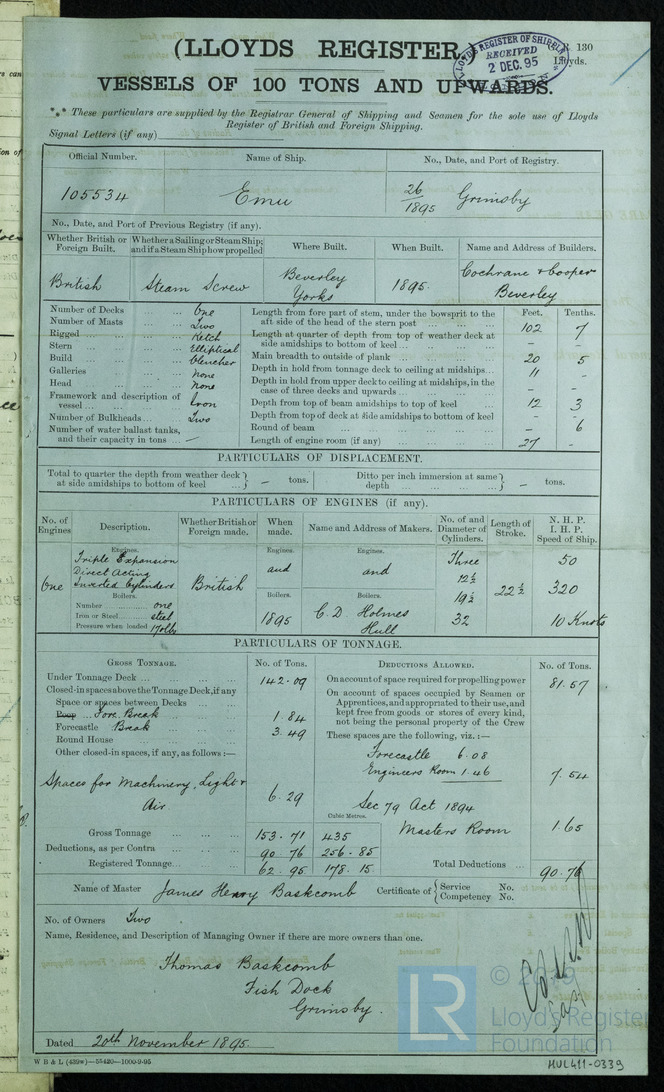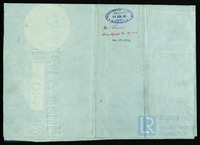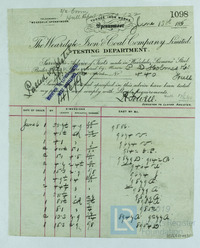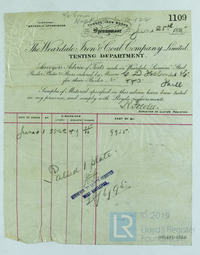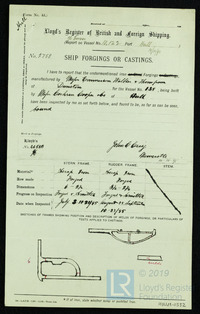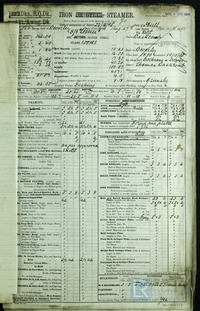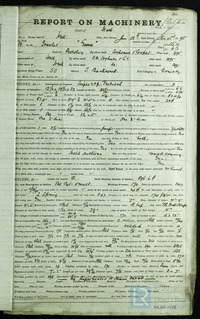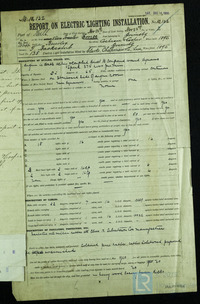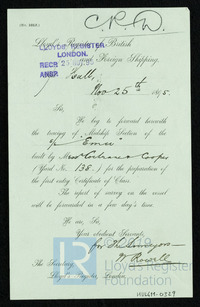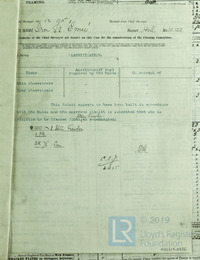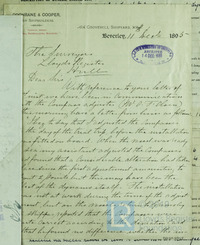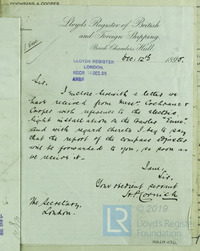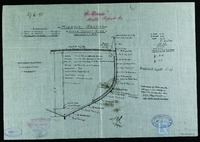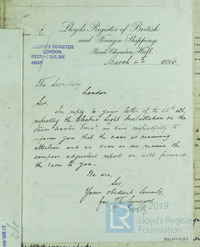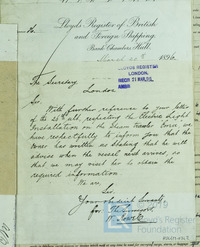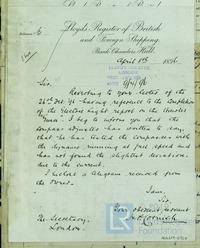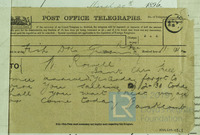- Related documents Related
- Full details Details
- Report document? Report?
Use the data export button to extract customised data sets from the Ship Plan and Survey Report Collection. Available in TSV and CSV formats.
Date recorded as the time of writing.
20/11/1895
The year in which a vessel’s construction is completed.
1895
The individual and/or organisation listed as having been responsible for constructing the vessel. This can/may be the same as the owner and/or manager.
Cochrane & Cooper
The port or place in which the vessel’s construction took place, at the time of writing.
Beverley
The port in which a vessel is registered or permanently based.
Grimsby
The individual and/or organisation listed
Thomas Baskcomb
Location where the document is written.
Grimsby
A vessel’s means of propulsion.
Steam
Is the steamer assisted by sail?
No
Type and configuration of the engine(s) supplied for a vessel.
Triple Expansion Direct Acting Inverted Cylinder
Date in which construction of a vessel’s engines were completed.
1895
Confirmation as to whether the vessel was equipped with refrigeration machinery to aid in the transport of frozen or chilled cargo/goods.
No
Does the vessel possess an auxiliary power source?
No
Is electric lighting fitted to the vessel?
No
Physical extent of a record.
1
Name of ship as recorded on the record
Emu
The process of transferring a vessel to water, but not necessarily her completion.
19/10/1895
Unique identifier for a given ship, it is assigned by a builder.
138
Official administrative title (often printed) of a record used by Lloyd’s Register or external organisations.
GR130 Vessels of 100 tons and upwards
Records that constitute Lloyd’s Register’s first official encounters with a specific vessel, e.g. a survey report.
N
An officially licensed mariner (post 1850) holding ultimate command and responsibility for a vessel.
James Henry Baskcomb
Physical arrangement of a ship’s masts, sails and rigging.
K - Ketch
Predominant material(s) utilised in a vessel’s construction.
Iron
A ship’s total internal volume in ‘register tons’ (replaced by gross tonnage post 1982).
154
Location of construction for a vessel’s engines.
Hull
Charles D Holmes & Co
Is machinery fitted at the aft of the vessel?
No
Generally a smaller additional auxiliary boiler (often used while the vessel is at port).
No
Name of the Proving House responsible for the public testing and certification of a vessel’s anchors and/or chain cables.
No
Report an issue with this document
Have you noticed missing or incorrect data or images for this document?
Please let us know and we will rectify the issue as soon as possible.

